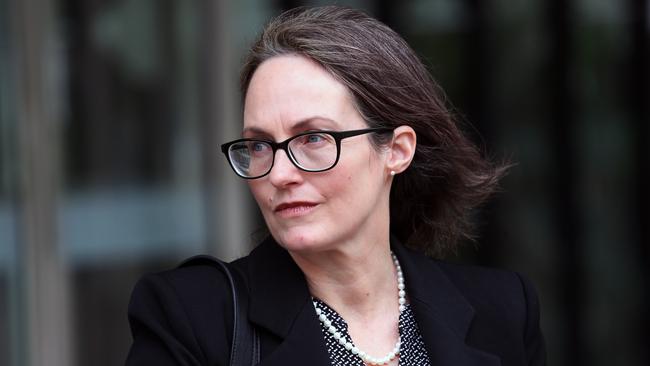High Court has ruled safety buffer zones outside abortion clinics in Victoria and Tasmania are valid
The High Court says safety buffer zones outside abortion clinics in Victoria and Tasmania are valid.

The High Court has split on whether abortions are political but unanimously dismissed an appeal by anti-abortion protesters in Victoria and Tasmania who sought to overturn convictions for protesting against abortions within “safe access zones” surrounding clinics.
Victorian mother Kathleen Clubb was convicted after attempting to hand a couple a pamphlet offering counselling and assistance to enable pregnancy to proceed to birth.
Ms Clubb argued the law was invalid because it impinged on the freedom of political communication.
Chief Justice Susan Kiefel and Justices Virginia Bell and Patrick Keane, however, found the communication had no connection with electoral choices.
“It was designed to persuade a recipient against having an abortion as a matter for the individual being addressed,” they found.
“It was not addressed to law or policy makers, nor did it encourage the recipient to vote against abortion or to take part in any public debate about the issue.
“It may therefore be accepted that the proscription of this communication did not involve an interference with the implied freedom.”
Tasmanian man John Preston was convicted after standing on the footpath near a specialist gynaecology centre with placards including statements such as “EVERY CHILD HAS THE RIGHT TO LIFE, Article 6, UN Convention on the Rights of the Child”.
“A public demonstration or manifestation about abortions in the vicinity of a clinic inevitably constitutes a threat to the equanimity, privacy and dignity of a pregnant woman seeking medical advice and assistance in relation to a termination,” Justices Kiefel, Bell and Keane found.
“There is no manifest disproportion between the burden on political communication effected by the protest prohibition and the law’s legitimate purpose.”
Justice Stephen Gageler said a protest on the subject of abortion was “inherently political”.
He found the burden Tasmania’s protest prohibition places on political communication was direct, substantial and discriminatory.
“In my opinion, the purpose of the protest prohibition as an element of s 9(2)’s proscription of “prohibited behaviour” within an “access zone” is best identified as being to ensure that women have access to premises at which abortion services are lawfully provided in an atmosphere of privacy and dignity,” he said.
“The purpose so identified is unquestionably constitutionally permissible and, by any objective measure, of such obvious importance as to be characterised as compelling.”
Justice Geoffrey Nettle said while abortion was a subject matter of political controversy, it didn’t follow that all communications about abortion were political.
“A woman’s decision whether or not to abort her pregnancy is not a political decision,” he said.
“It is an apolitical, personal decision informed by medical considerations, personal circumstances and personal religious and ethical beliefs, qualitatively different from a political decision as to whether abortion law should be amended
“For the same reason, a communication directed to persuading a woman as to whether or not to abort her pregnancy is not a political communication but a communication concerning an entirely personal matter.”
New South Wales Council for Civil Liberties president Pauline Wright said the decision provided clarity as to the constitutionality of existing safe access zone provisions and a context to facilitate the extension of the “much-needed legal protections” to women in Western Australia and South Australia.
Marie Stopes Australia medical director Philip Goldstone said the zones were important for patient privacy and dignity.
“As a doctor with more than 20 years’ experience in this field, I know that these zones are a matter of health, safety and wellbeing,” he said.
“[The] High Court ruling is a win for women and a win for staff health and safety.”
Victorian health minister Jenny Mikakos said women had a right to access legal health services in privacy and without being harassed.


